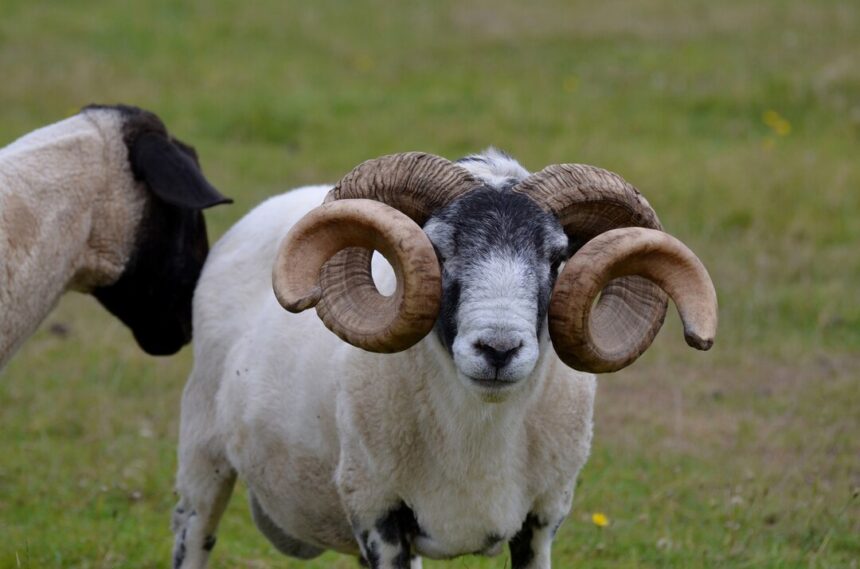Dorset Horn sheep, characterized by their distinctive horns and white, woolly coats, are a popular choice among farmers in South Africa for their hardiness, adaptability, and excellent meat production qualities. Whether you’re an experienced breeder or considering raising Dorset Horn sheep for the first time, understanding the unique characteristics and requirements of these sheep is crucial for successful breeding and farming operations. In this article, we’ll explore 10 key things you should know about breeding and farming Dorset Horn sheep in South Africa.
1. Origin and History
Dorset Horn sheep originated in the county of Dorset in England and have been bred for centuries for their meat and wool production qualities. They were first introduced to South Africa in the late 18th century and have since become a popular choice among farmers for their adaptability to various climatic conditions and production systems.
2. Hardy and Adaptable
Dorset Horn sheep are known for their hardiness and adaptability to a wide range of environmental conditions. They thrive in both hot and cold climates and are well-suited to the diverse terrain and weather patterns found in South Africa, from the arid regions of the Karoo to the lush pastures of the Eastern Cape.
3. Distinctive Appearance
One of the most recognizable features of Dorset Horn sheep is their distinctive horns, which curve outwards and upwards from the sides of their heads. Both rams and ewes have horns, although those of the rams are typically larger and more prominent. Dorset Horn sheep also have white, woolly coats and a compact, muscular build.
4. Dual-Purpose Breed
Dorset Horn sheep are considered a dual-purpose breed, meaning they are well-suited for both meat and wool production. They produce high-quality, lean meat with excellent flavor and texture, making them a popular choice among farmers and consumers alike.
5. Early Maturing
Dorset Horn sheep are known for their early maturing characteristics, with lambs reaching market weight at a relatively young age. This makes them an economically viable option for meat production and allows farmers to achieve faster turnover rates and maximize profitability.
6. Prolific Breeding
Dorset Horn sheep are prolific breeders, with ewes typically producing multiple lambs per lambing season. This high fertility rate, combined with their early maturing qualities, allows farmers to rapidly expand their flocks and increase productivity.
7. Excellent Mothering Abilities
Dorset Horn ewes are renowned for their excellent mothering abilities and strong maternal instincts. They are attentive mothers, with a natural instinct for lambing and nurturing their lambs, which contributes to the overall success of breeding programs and lamb rearing.
8. Easy to Handle
Dorset Horn sheep are known for their docile temperament and easy handling characteristics, making them well-suited to intensive farming systems and reducing the risk of stress-related health issues. They are also highly adaptable to handling and management practices, making them an ideal choice for both novice and experienced farmers.
9. Disease Resistance
Dorset Horn sheep are known for their robust health and disease resistance, thanks to their strong immune systems and adaptability to various environmental conditions. They require minimal veterinary intervention and have lower incidence rates of common sheep diseases, reducing the need for costly treatments and medications.
10. Market Demand
The market demand for Dorset Horn sheep and their products continues to grow in South Africa, driven by increasing consumer awareness of the breed’s superior qualities and the rising demand for high-quality lamb meat and wool products. Farmers who breed and farm Dorset Horn sheep stand to benefit from favorable market conditions and lucrative opportunities in both the meat and wool sectors.
Dorset Horn sheep offer numerous advantages for farmers in South Africa, from their hardiness and adaptability to their excellent meat and wool production qualities. Whether you’re a meat producer looking to increase lamb yields or a wool farmer seeking superior wool quality, Dorset Horn sheep are a valuable asset to any farming operation. By understanding the unique characteristics and requirements of Dorset Horn sheep, farmers can harness the full potential of this versatile breed and achieve success in the competitive agricultural industry of South Africa.
Join 'Farmers Mag' WhatsApp Channel
Get the latest Farming news and tips delivered straight to your WhatsApp
CLICK HERE TO JOIN






